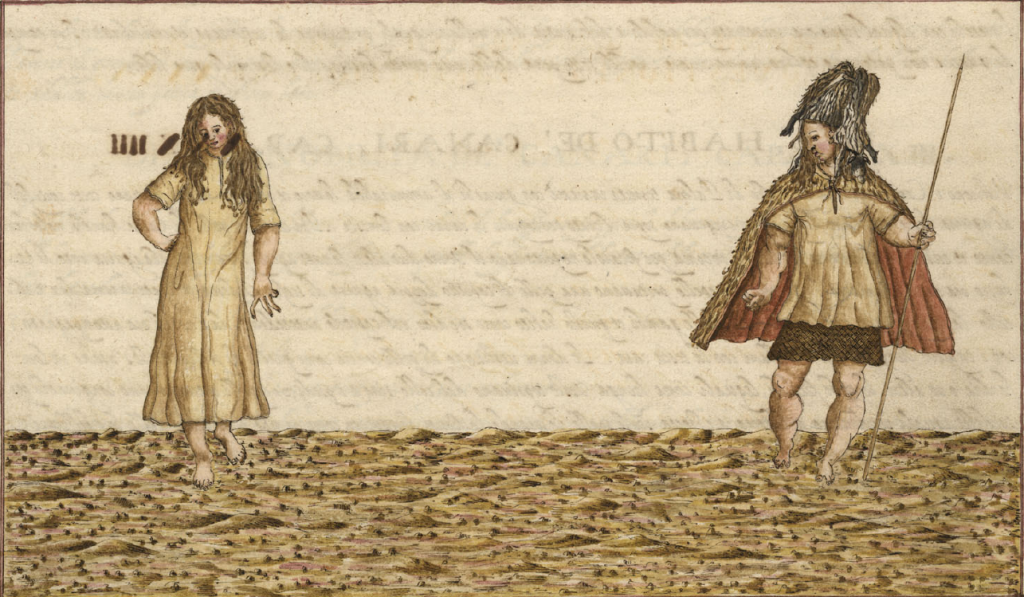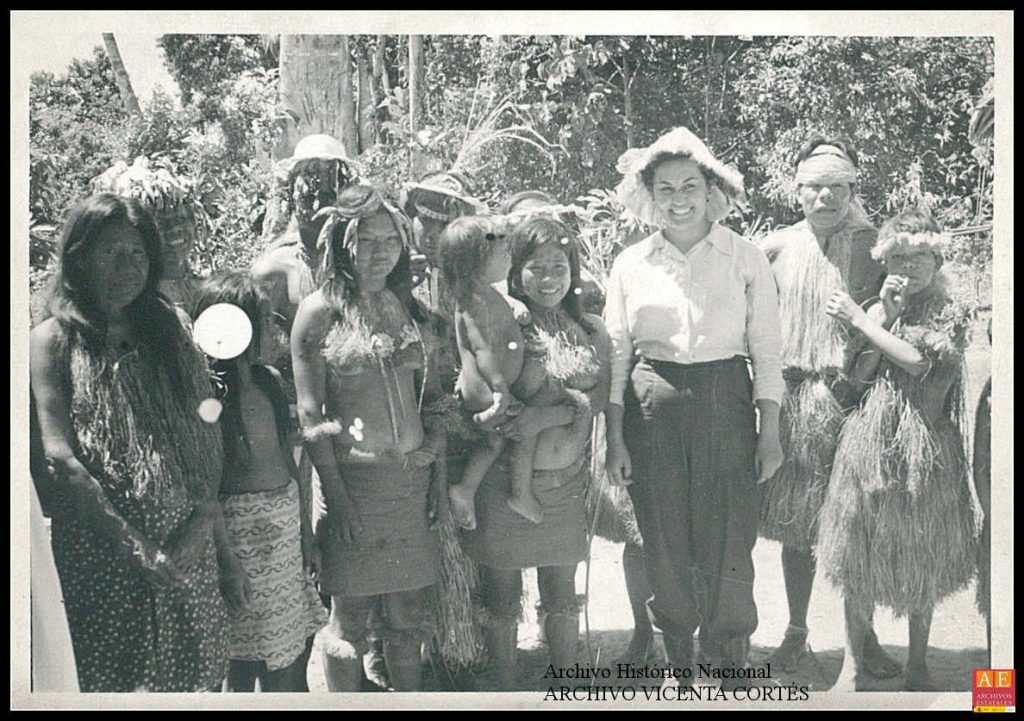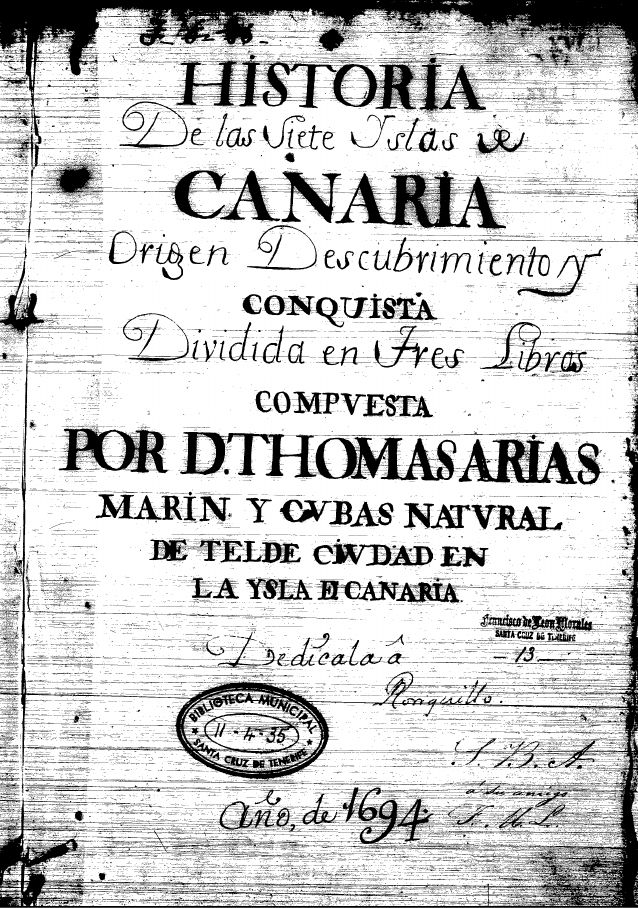The statute on killing the girls

Indigenes of Gran Canaria as per recreation by Leonardo Torriani (16th century) (source: Biblioteca Geral da Universidade de Coimbra, catalogue number Ms. 314, folio 36v.)
In thriving societies, population control is a topic that inspires debates subjected to ethical, moral and religious considerations, often distorted by the conjuncture of a welfare state that is supposed to hold an indefinite durability. But in human communities subject to limiting factors, whether temporary or permanent, either of productive –scarceness of drinking water, arable land and / or pastures–, environmental –plagues, epidemics, droughts, floods, fires– or political nature –wars– the survival of these could depend largely on the application of restrictive measures on the birth rate, while it is true that, in many cases, these measures seek to promote the interests of the privileged classes by means of eugenics or selection of individuals deemed most convenient.
In the Canarian historiography, specifically in Gran Canaria, the so-called statute on killing the girls is paradigmatic, so named by its best known reference, Brother Juan de Abreu Galindo:


